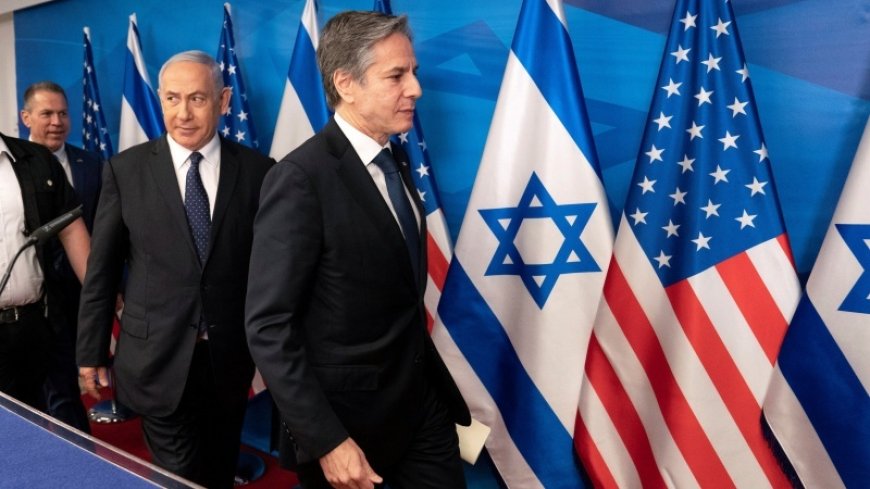Netanyahu's Role in the Israel-Gaza Conflict: A Strategic Alliance with U.S. Interests in West Asia
The ongoing conflict between Israel and Gaza has brought renewed attention to the intricate and longstanding relationship between the United States and Israel, particularly in the context of West Asia's geopolitical landscape. Analysts argue that Israeli Prime Minister Benjamin Netanyahu's ability to pursue aggressive policies, both in Gaza and the wider region, is largely contingent on the unwavering support of the United States.

The ongoing conflict between Israel and Gaza has brought renewed attention to the intricate and longstanding relationship between the United States and Israel, particularly in the context of West Asia's geopolitical landscape. Analysts argue that Israeli Prime Minister Benjamin Netanyahu's ability to pursue aggressive policies, both in Gaza and the wider region, is largely contingent on the unwavering support of the United States.
The support from the U.S. is seen as crucial not just for Israel's military capabilities but also for the social and political backing within Israeli society. Without this support, analysts suggest, Netanyahu would struggle to maintain the strength necessary to carry out military operations and sustain his political agenda.
According to recent reports, Netanyahu's actions in the region appear to be designed, in part, to draw the U.S. into a broader regional conflict. There are concerns that incidents like the attack on the Iranian embassy in Damascus or recent killings in Beirut and Tehran could be attempts to escalate tensions, thereby involving the U.S. more deeply in regional conflicts.
Netanyahu's Political Maneuvering
There is a growing consensus that Netanyahu's approach to the conflict is influenced by his domestic political considerations. Facing internal challenges and the possibility of extraordinary elections, Netanyahu seems to be leveraging the conflict to consolidate his power. His hardline stance and reluctance to agree to a ceasefire are seen by some as efforts to maintain his political standing, especially in the wake of the October 7 attack and subsequent internal disagreements within Israel over war priorities.
Public support for Netanyahu has reportedly increased, surpassing that of his political rival Benny Gantz. Following the recent escalations, Netanyahu is now considered a leading candidate for prime minister in future elections, reflecting a significant shift in public opinion.
U.S.-Israel Relations: A Strategic Dissonance?
While there are apparent differences between the Biden administration and Netanyahu, particularly regarding the approach to a ceasefire and the humanitarian situation in Gaza, these disagreements have not significantly altered the broader U.S. strategy. Despite calls from the White House for a ceasefire to save hostages' lives and criticisms over civilian casualties in Gaza, the U.S. continues to provide military support to Israel.
This ongoing support underscores the U.S.'s strategic interest in maintaining a strong alliance with Israel, even as it navigates the complexities of West Asia's volatile political landscape. However, analysts caution against interpreting this as the U.S. merely following Netanyahu's lead. Instead, the continuation of the conflict is viewed as part of a broader U.S. policy in the Middle East, where Israel plays a pivotal role.
Broader Implications for West Asia
The situation raises critical questions about the future of U.S. involvement in West Asia. Some suggest that Netanyahu's actions could be part of a broader strategy to keep the U.S. engaged in the region, thereby ensuring continued support for Israel's security concerns. Others argue that this strategy could backfire, potentially dragging the U.S. into a conflict that it might prefer to avoid.
In the meantime, the Israeli opposition continues to push for a ceasefire, emphasizing the need to prioritize saving hostages while leaving room for military actions to resume if necessary. This debate reflects broader concerns within Israel about the long-term consequences of the conflict and the challenges of balancing military objectives with humanitarian considerations.
As the conflict continues, the international community watches closely, aware that the outcomes in Gaza and the broader region could have significant implications for the future of West Asia and the U.S.-Israel alliance.













































